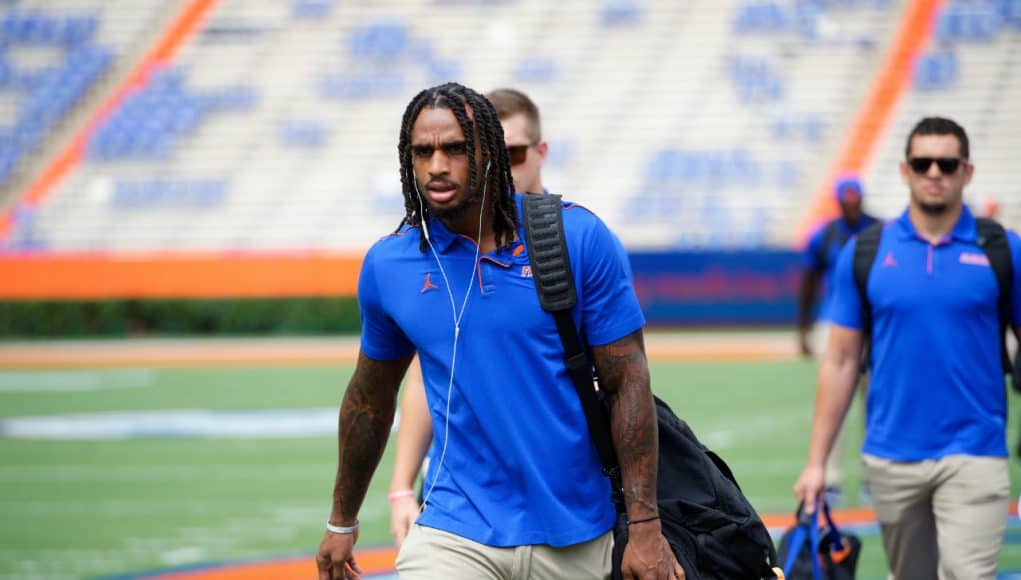On Tuesday the NCAA announced it will allow student-athletes to profit off of their name and likeness.
The NCAA Board of Governors released a statement that they voted “unanimously” to allow players to “benefit from” their name, image, and likeness in what is a major change from the current policy, which says that doing so would eliminate a student-athlete’s amateur status.
There is no timetable for when this rule change would take effect or how the NCAA plans on policing. The statement on Tuesday is largely due to the recent legislation passed in California and subsequent legislature in other states — Florida included — to allow student-athletes to take advantage of their stage and popularity and monetize it.
After practice Tuesday several Florida Gators were asked about the statement and were asked to give their opinion.
The most outspoken of the Gator athletes has been senior receiver Tyrie Cleveland. With his head down and his thick, unmistakable dreadlocks draped over his face he listened as the question he knew was coming came. Cleveland laughed and clapped his hands.
“It’s a big step to heading in the next direction,” Cleveland said. “You know, just hearing from the NCAA, just sending out votes, that’s a great thing for players, player-athletes. I’m overwhelmed, I can’t even — I’m excited, excited for the future.”
Cleveland is a senior and won’t be able to benefit from the rule change, whenever it takes effect but he’s happy that the tide is changing. He doesn’t know precisely why the rule is in place but he thinks the conversation to eventually allow this change began with a video game — or the removal of the game EA Sports NCAA Football.
“I feel like it wasn’t really a big deal back then, but once they took away NCAA the game and stuff, everybody starts questioning, like, ‘Why you taking the game?’ and stuff like that,” he said. “Most players agreed, ‘Yeah, we should get paid for our likeness.’ So just seeing them take steps in the right direction and not ignoring us. That’s a good sign.”
Another senior receiver echoed the sentiments.
“It’s long overdue, definitely, definitely,” Jefferson said. “But now that they’re making it an emphasis to do it, that’s great.”
There are potential pitfalls, for sure. There will need to be details ironed out and it’s going to be a learning process for schools, administrators and the NCAA but allowing players to profit from their likeness is a good step for the student-athletes. We live in a capitalist society. No one player is bigger than the university in which they play but there are certain student-athletes that generate gigantic financial numbers for their teams and schools. Playing a Division I sport is a full-time job and the players aren’t asking for a paycheck from Athletic Directors. They’re not asking the school to cut them a check. They’re simply asking, and will finally get, the opportunity to sit at the table and have a slice of the pie that they helped make.
“We do a lot of work, put in a lot of work in this program and school, and it’s kind of like a job,” Freddie Swain said. “I think we should be rewarded.”



This is really unfortunate as it will create significant disparity among programs. Yes, in the short run, it benefits both UF and the athletes, but long term this is a poorly designed stop gap resulting from decades of NCAA abuse. Small stipends and group benefits would have been a much more desirable track in supporting the vast majority of young scholar athletes. What we are inevitably driving towards is pure financial capabilities. It’s a sad day for the game – not to mention what this will do to the concept of the team.